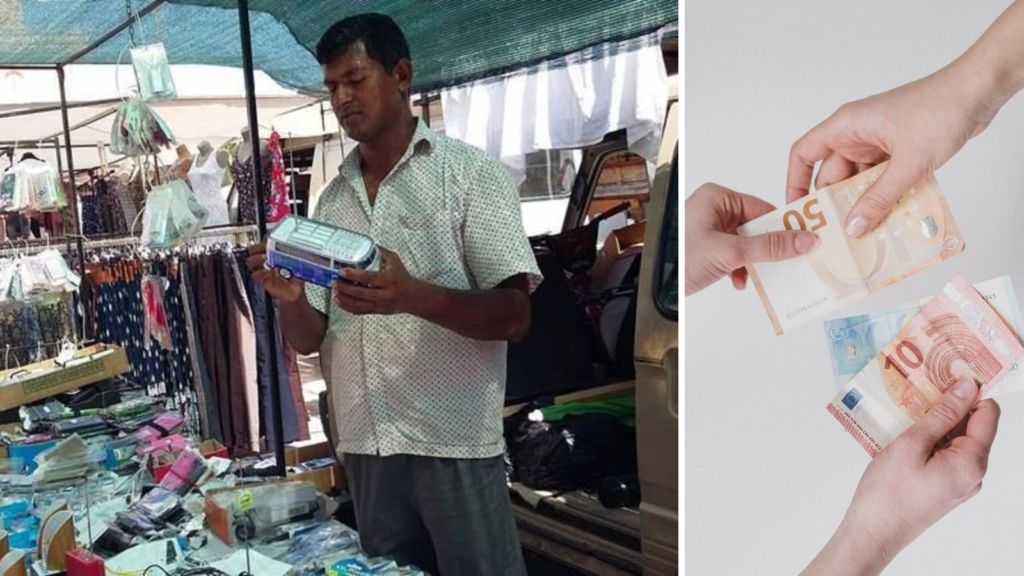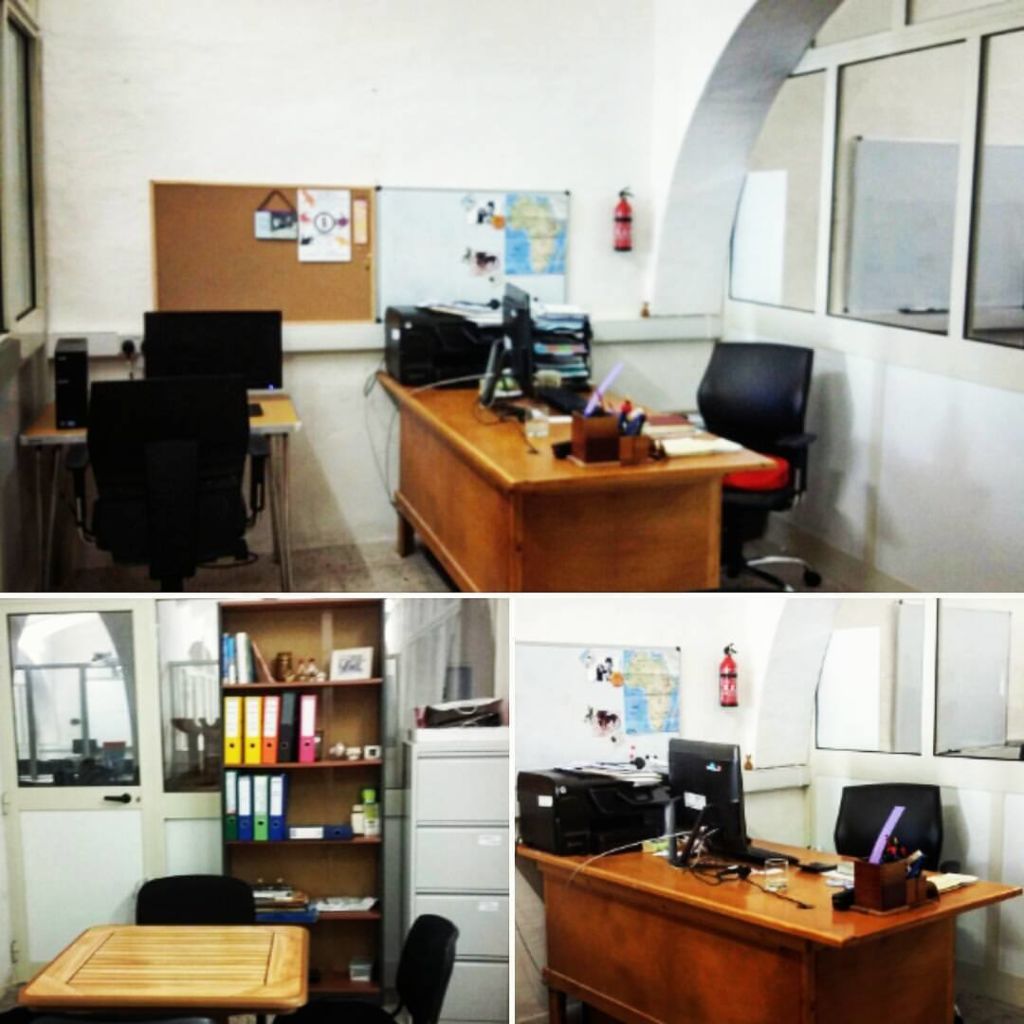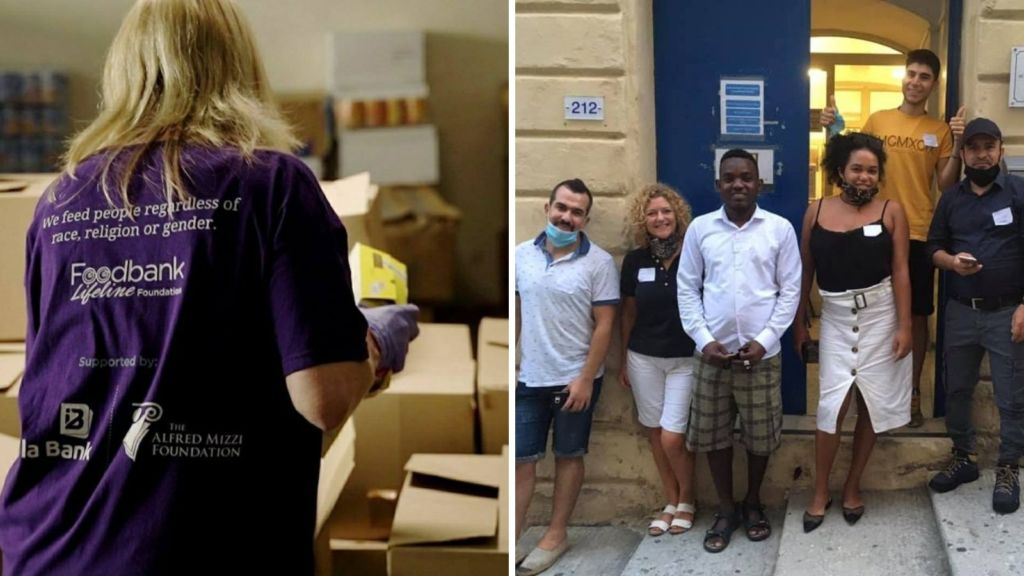This Maltese, Church-Run Group Helps Vulnerable People With Small Loans. More And More People Are Turning Up For Help

When Malta Microfinance was set up in 2013, it aimed to give Malta’s most vulnerable, like migrants and single mothers, a better chance at life through small, interest-free loans.
But as the years went by, their pool of clients stretched beyond those groups. Now, they reach people from every walk of life.
MMF is run by St. Andrew’s Anglican Church, and is based on a Grameen Bank model – a community development bank launched in 1983 to supports vulnerable people in Bangladesh through a credit system.
“It’s basically a loan to give people a chance of bettering their quality of life after a year,” Christa Wiegand who helps run the organisation explained.

Malta Microfinance's office in the basement of St. Andrews, Valletta
Who do they help?
Malta Microfinance helps people from all walks of life. Low-income mothers, domestic violence victims, street vendors, and even refugees looking to get a head start while pursuing studies, can apply for a microloan.
“We don’t give loans for basic necessities, but we do help them find support for that. It’s truly a holistic service we try to give.”
“We can’t do miracles – there needs to be a certain project for us to fund. They don’t just get a cheque in their hands,” Wiegand continued.
Loans can either be for small businesses, for those wanting to further their education or training materials and the third is rent, helping those in poor-quality or temporary housing.
They can vary from €100 to €5,000 – but it’s not just money on offer. MMF’s staff, who often hail from financial careers, act as mentors for business plans and accountants, too.
Weigand explained that they received between ten and twenty requests for loans a month. They grant three to five of them.
“There’s one success story that’s close to my heart. A young man from Togo who opened an electronics store in Ħamrun. He opened a shop with a Maltese family and needed money to get the business afloat. He got a loan with Malta Microfinance, kept his day job and went to the electronics shop in the evenings.
“He was never late on a single payment. It’s one of the finest examples of integration in Malta in my opinion,” she recalled.
Another story is that of Moshair Rahman and his thriving street business in Floriana.

The Bangladeshi borrowed €2,500 to buy his first stock of mobile covers, giving him space to launch the business as well as feed the mouths of his family and pay his rent, too.
Business thrived, and he was able to take another loan to buy more stock, like nifty Bluetooth speakers, little radios and chargers too. Rahman is now planning on opening a convenience store.
Another example is a migrant family currently studying at MCAST. Both parents are working while following tertiary education courses in the evening to climb the employment ladder.
“I honestly don’t know when they sleep,” Weigand laughed. “But they managed to repay the loan, in a little less than a year in order to pay for another course.”
That’s another benefit of these loans – when it’s repaid, you can apply for another.
Another instance where MMF helps is third-country nationalists, whose qualifications aren’t recognised. These loans help fund courses to get licenses to work.
“We get a lot of refugees from North Africa who are doctors and nurses. They don’t have access to traditional banks, so these loans help get them on their feet and into their field of work.”
Seven years since their launch, the group has helped dozens of financially-struggling people whose options to break their cycle of poverty are scant.
However, requests for help are steadily increasing year after year.
“Many people coming to us for help are on the edge of homelessness or were kicked out of their dwellings that same morning. Some are sleeping rough with children. Some are in shelters. It’s a huge problem, and it’s only getting worse,” Weigand warned.
The MMF officer said that worker abuse and higher costs of living in Malta are to blame.
“A lot of people – Maltese and foreigners alike – are being abused through illegal work contracts. Even if certain benefits are written in their contracts, they might not get what they bargained for,” she remarked.
From unpaid overtime hours, working full-time days on part-time contracts, being unaware of their rights as workers and other exploitative actions often trap workers in vulnerable situations. It could even mean they won’t be eligible for Malta Microloans.
“Some people, exploited by their employers, come in for a loan. Say they’re earning €1,100, but it’s only €650 declared on their contract. Their rent alone exceeds what they’re legally earning. How does that leave anything for food, medicine, and emergency?”
“The employee often thinks it’s a good idea to accept a contract like this, but forgets that their pension isn’t being paid for, nor their taxes, and they lose their eligibility loans. In the end, it’s the employee who loses.”
“Essentially, its modern slavery. We hear of people brought to Malta through agents. They’re lured here to work jobs they’re qualified for, but here they’re given lower positions that earn less. They take them anyway.”
“Unfortunately, we wouldn’t be able to help them. We have to know they’ll be able to pay us back.”
But while Malta Microfinance can’t help all those that come through their doors on Bakery Street, Valletta, they share offices with other organisations which could fill the gaps.

Foodbank Lifeline and the volunteers from Blue Door English
In the basement building of St. Andrew’s lies the headquarters of Blue Door English, a voluntary group the teaches English for free. There’s Foodbank Lifeline, which provides hundreds of families with food a year. There’s also African Media, which aims to elevate the voices of underrepresented African people in Malta.
The work these organisations do is no easy task – poverty cycles are often difficult to break out of, especially as a foreigner with little idea of the workings of bureaucracy and their own rights.
Tag someone who needs to know this
